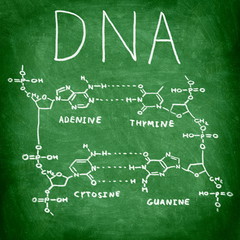Hormones are natural substances produced by the glands in our hormone system and released in to the bloodstream. They behave as messengers to hold signals between one area of the body and the other.
There are various kinds of hormones. Each one of these controls the development and activity of particular cells and organs.
Hormones and cancer
Some cancers or cancer treatments can alter the quantity of hormones your body produces. Also, some cancer cells produce hormones that create signs and symptoms.
When cancer treatments change hormonal levels, they often lower the quantity of particular hormones. They are able to do that by blocking the act of hormones, or by reduction of the quantity of the hormone your body makes.

Sometimes, treatments can steer clear of the body creating a particular hormone altogether. Treatment related alterations in hormonal levels might be temporary or permanent.
Treating cancer of the breast and cancer of the prostate are likely to affect hormonal levels in your body. But strategy to other kinds of cancer can impact them as well.
The sex hormones are the types of hormone most generally impacted by cancer and it is treatment. Alterations in the amount of sex hormones in your body may cause particular signs and symptoms.
Sex hormones and cancer
Whether you’ll probably have alterations in sex hormonal levels depends upon the kind of cancer and treatment you’ve.
Sex hormones include excess estrogen, progesterone and testosterone.
Excess estrogen
Excess estrogen is really a female hormone. The ovaries make the majority of the excess estrogen a lady needs. The adrenals also make a percentage. They are small glands just over the kidneys. Excess fat also produces some excess estrogen.
During adolescence, excess estrogen promotes the sexual growth and development of women, including breast type tissue. Excess estrogen likewise helps to manage periods (the menstrual period) and also the discharge of eggs.
Men produce some excess estrogen, but much under women. In males, the testes and adrenals make a percentage, which will help sperm to mature and boosts libido (libido).
Progesterone
Progesterone is yet another female hormone produced by the ovaries. While pregnant the placenta also makes progesterone.
Progesterone helps you to control the menstrual period. Additionally, it leads to breastfeeding and looking after pregnancy.
Testosterone
Testosterone is really a male hormone. The testes make the majority of the testosterone a guy needs. The adrenals also make a tiny bit of an identical male hormone, that the body changes into testosterone. Have a look at Testogen uk formula, they are working fine.

Men need testosterone to create sperm. It may also help to keep muscle and plays a role in libido. It leads to the sexual growth and development of boys during adolescence, for example:
a much deeper voice
development of hair on your face
muscle growthIn females the ovaries and adrenals make small quantities of testosterone which will help to keep muscle and plays a role in libido.
Sex hormone signs and symptoms
If cancer treatment lowers the amount of sex hormones or stops the body which makes them, you’ll probably possess some signs and symptoms.
Signs and symptoms vary for every person. Although they may be mild, they may also be severe and want treatment. Some signs and symptoms is only going to continue for a couple of days or several weeks, or when you are getting the therapy. But they may also continue for many several weeks or years.
Signs and symptoms of alterations in sex hormonal levels may include:
hot flushes and sweats
memory and concentration problems
decreased or lack of need for sex (lack of libido)
mood changes
tiredness
sleeplessness
pains and aches
weight changes
bone loss
heart disease because of elevated levels of cholesterolWomen may also have:
vaginal dryness
urinary problemsMen may also have:
lower libido and erection problems (impotence)
breast swelling and tenderness
muscle weakness